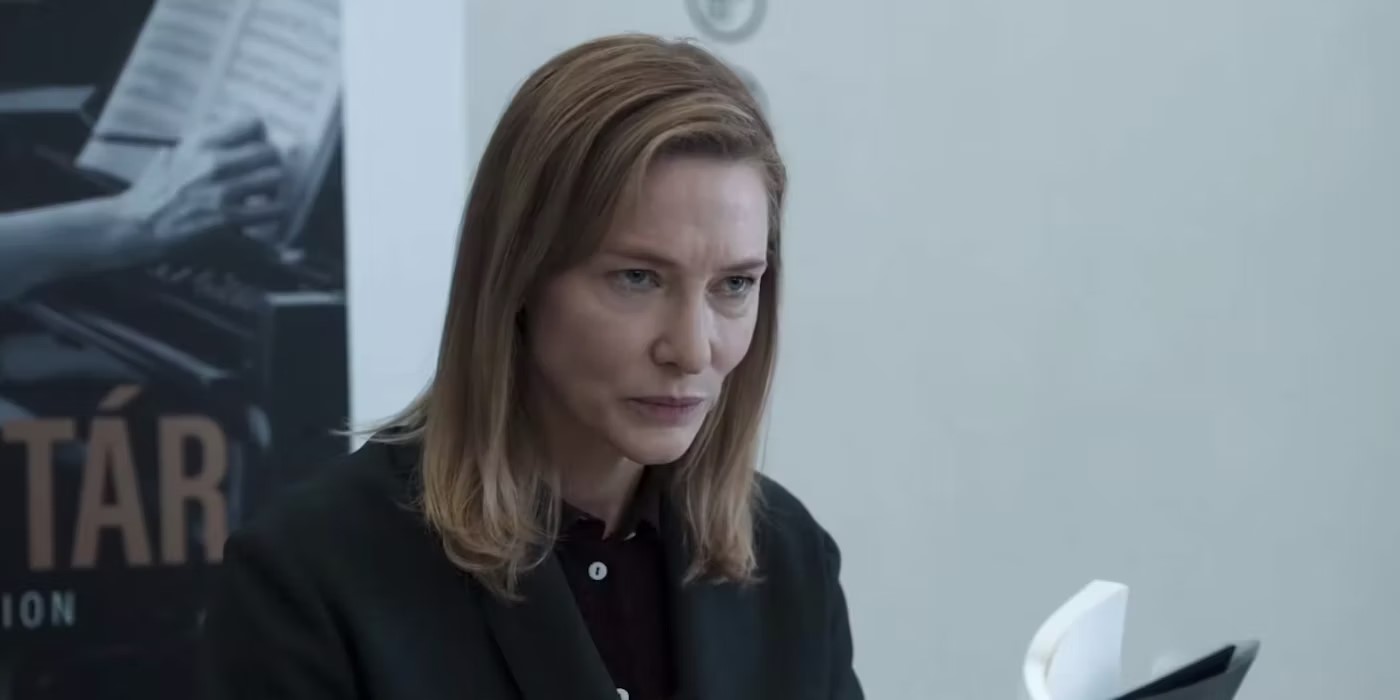By Ben Miller

I can't say I went into Todd Field's TÁR, only his third film, with any sort of expectations. Rave after rave of Cate Blanchett's performance piqued my interest but I wanted to go in with fresh eyes so I didn't read them. The opening credits hit. We're in for something different. Then we get Lydia Tár's introduction and her interview with Adam Gopnik. All the way on board. The next two hours were magical, transfixing. This is a perfect film. It might be my new number one of the year! Everything was working. The tone, the supporting players, the drama, the comedy. Nothing was missing.
But then we reached the last 15 minutes. SPOILERS AHEAD - READ ONLY IF YOU'VE SEEN TÁR...
For 2+ hours, Field and Blanchett crafted this difficult and complex character destined for a fall from grace. There's constant tension, threats, ominous sounds, and deflections. Finally, the other shoe drops. Lydia had spent her career honing her craft to a razor's sharpness, but also left sexual conquests and professional misconduct in her wake. When Krista, one of her conquests, commits suicide, the gears of justice begin to turn. Investigations are formed; depositions are scheduled.
Lydia looks to her do-all assistant Francesca (an exceptional Noémie Merlant), but the conductor's professional ruthlessness has alienated Francesca as well. Francesca is on the opposing side. The truth comes out. Lydia is deposed, she loses her position in the orchestra, her reputation is in shambles, and her long-suffering wife Sharon (the even more exceptional Nina Hoss) leaves her - taking their daughter as a result. To add insult to injury, she bursts into the live performance she was supposed to conduct and embarasses herself further.
With no other options, Lydia returns to New York to a crisis managment firm, who suggests she gets back to basics and lay low for a while. She returns to her Staten Island home and cries while watching tapes of her mentor, Leonard Bernstein.

All of the sudden, Lydia is in Southeast Asia. She is conducting a small orchestra in a warehouse. She is still focused on her work, but she is alone and alienated. The film ends as she conducts the orchestra score to a video game in a room filled with cosplayers.
But what is is the goal of the Asian prologue? Do we need to see some sort of righteous retribution? The audience is not exactly on Lydia's side after 2+ hours of her general misbehavior. Isn't enough that we know her life is in shambles?
Field had an idea for the destruction of Lydia, but it feels as if he didn't know when to stop. Why hammer home her fall? The final 15 minutes only demonstrates the relative squalor she is now forced to live in when compared to her previous lavish lifestyle. This adds nothing to how we feel about Lydia, but it does make the audience feel that much better about karmic justice.
I have been watching a number of older films lately. Most of them have the dreaded Hays Code lingering over them. Pre-code films get away with things you would never expect from films made in the 20s and 30s. Enforcement of the code stiffled filmmakers in such drastic ways, you wonder what exceptional art could have been made if not for the puritanical enforcement of the Hays Code.
One of the sticking points of the Code was the retribution of the criminal/villain. This is where TÁR lost me. This is the story of a woman losing everything due to her professional and sexual naricism is one thing. If the film ends with Lydia crying over Bernstein, it's five stars all day. Instead, this previously observational film needs to editorialize to give us Lydia's punishment. There can't be any ambiguity about how she might be tortured, we need to be shown. For 2+ hours Field puts the utmost faith in his audience, but abandons that faith right at the goal line.
Ending the film with the Bernstein tape puts ambiguity in the forefront. Where does Lydia go from here? Does she self-destruct even further? Does she go on an apology tour? These are questions we could ask ourselves, to enrich our engagement. Field doesn't let us ask the questions but provides the answers in a spoon-fed conclusion. See, she's suffering despite doing the work she was meant to do. Do you get it?
This isn't new of course. Do you remember the Netflix film I Care a Lot with Rosamund Pike? Pike's character was deplorable but the film expected you to enjoy her amorality. Still, the ending had her killed to tie it all up in atidy bow. Whether it's TÁR, I Care a Lot, or any number of Hays-enforced films from the 40s and 50s, justice doesn't need to take us to the finish line. Sometimes complexity of character and narrative is more than enough to get the point across.
TÁR is still an exceptional film with a powerhouse Blanchett performance. I just wish Field would have held that faith in the audience all the way through to the end credits.

How did you feel about TÁR? Were you with it all the way?